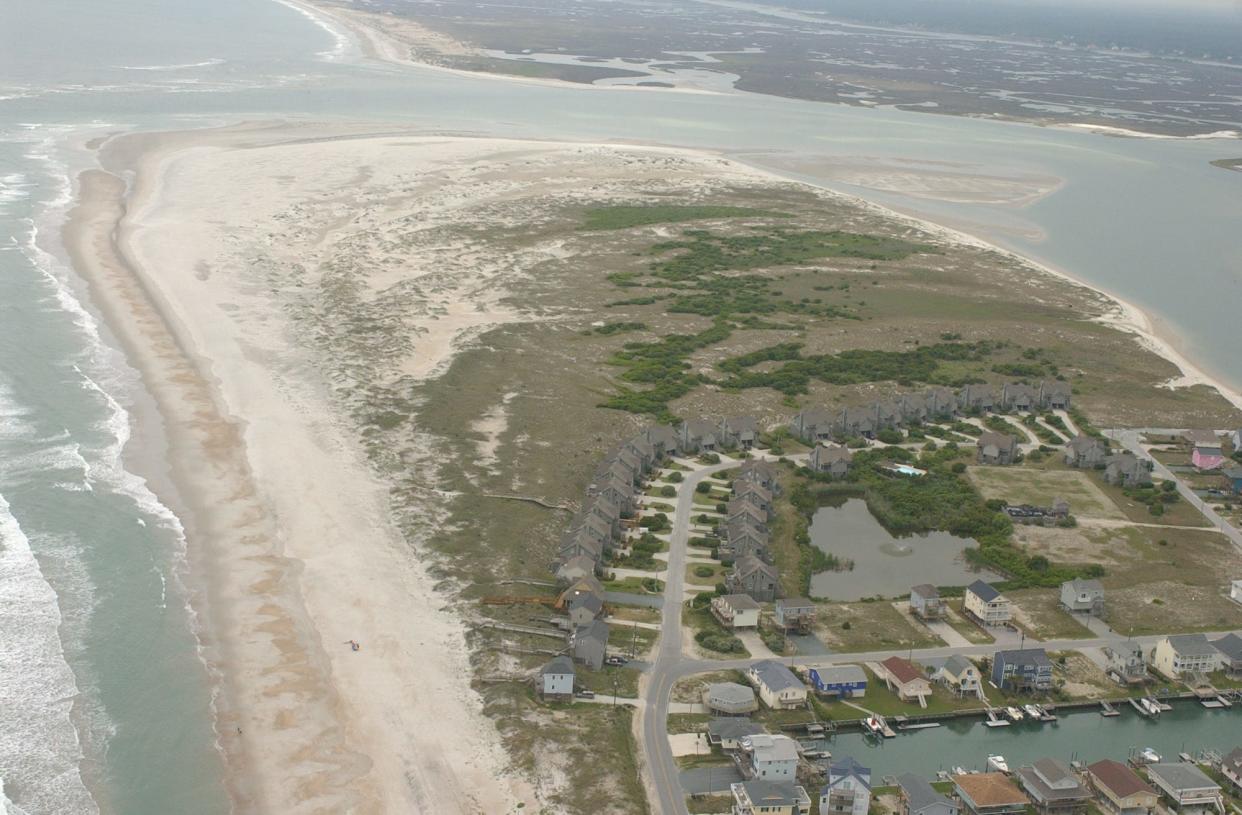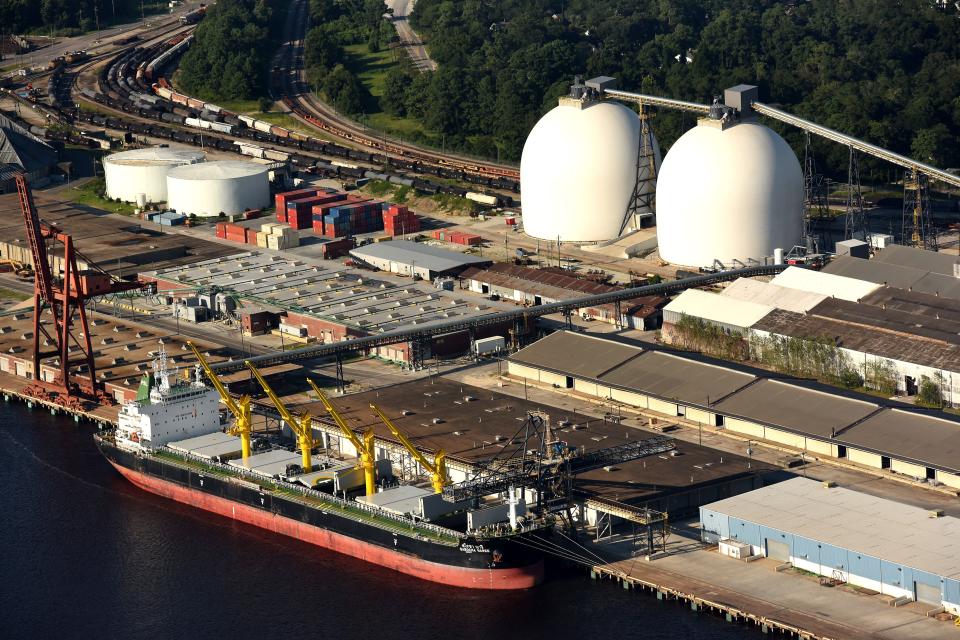Why 2023 was a mixed bag for the environment in the Wilmington area

From major decisions in Raleigh to a relatively quiet weather year, aside from extended periods of hot and humid weather, 2023 was still an active one for environmental news as politics, climate change, economics and the state's surging population continued to create headlines.
Southeastern North Carolina avoided any serious impacts from tropical storms or hurricanes in 2023, much to the relief of Wrightsville Beach officials and residents who are only now seeing their delayed beach nourishment project get started.
But the region, and the state as a whole, endured another fall drought and sweltering summer temperatures and warm fall months reflected global trends, influenced by climate change, that 2023 is on pace to be the hottest year ever recorded.
From political decisions to non-decisions to develop in Pender County, here are some of the bigger environmental stories that impacted the Cape Fear region this year.
Applying the brakes
Passed nearly two months late, North Carolina's state budget, which sets most spending priorities for the 2023-25 fiscal cycle, wasn't exactly the greenest document.
The budget, which largely reflects views of the Republican majority in the General Assembly, banned local governments from adopting plastic bag bans. It also stopped state regulators from requiring utilities to offset their carbon emissions through cap-and-trade programs and slows down initiatives by Democratic Gov. Roy Cooper to prompt businesses and consumers to make the shift to electric vehicles.
Republicans said the moves had to be scaled back so as not to hurt economic growth and place more financial burdens on residents and businesses. But environmentalists say slow-footing the green transition will cost North Carolina economic opportunities and expose residents to increased environmental and health dangers.
The moves come despite continued "green" investments by companies into the North Carolina economy, including plans by an Indian company to build an EV battery plant in Brunswick County.

GREEN MONEY Plastic bags and EVs in the slow lane: What does NC's new budget mean for the environment?
Carbon plan, take two
Duke Energy late this summer released the second version of its "carbon plan," a requirement under regulations agreed to with the state to reduce North Carolina's carbon emissions from the energy sector by 70% from 2005 levels by 2030 and reach carbon neutrality by 2050.
As with the initial plan, the proposal called for more natural gas, more solar, more wind, and a continued plan to incorporate new technologies into North Carolina's future power grid. Duke said the "all of the above" plan offers the best way to meet the state's future energy needs and emission-reduction goals without relying too much on one power sector and offers reliability and affordability to consumers − albeit by pushing the first reduction target back five years to 2035.
But environmentalists and clean air advocates said the company's proposal shackles the state to emission-spewing and costly natural gas plants for decades to come instead of focusing on cheaper and cleaner renewable energy sources, like wind and solar. They also don't want to see the 2030 deadline pushed back for health and environmental reasons.
ENERGY TRANSFORMATION DELAYED? With more gas and renewables, Duke Energy wants to meet NC carbon-reduction goal by 2035

Chopped down?
A wood-to-energy company with major operations in Eastern North Carolina, including a terminal at the Port of Wilmington, found itself in serious financial difficulties as 2023 drew to a close.
Stock of Maryland-based Enviva was hovering around $1 a share before Christmas after reaching $80 a share 18 months prior, the result of bad long-term contracts that have the company making less money even though it's selling more wood pellets to customers in Europe and Japan than ever before.
Mix in high interest rates and lingering operational issues at some of its facilities and the company is struggling to stay solvent. If Enviva fails, it could send economic shockwaves through many rural areas. The company says it supports 1,800 jobs in towns and counties where other employment opportunities are often few and far between.
TIMBER! Wood pellet giant with major operations in Eastern NC faces a growing financial crisis
Development plans blunted
For much of 2023 Topsail Island was consumed by what would happen to "The Point," the sandy spit of land in Topsail Beach at the very southern tip of the Pender County island.
A Raleigh software entrpreneur had proposed devleoping part of the roughly 150-acre parcel as a family compound, while keeping the remaining 80% of the site undeveloped and potentially protected under conservation easements.
But the proposal drew intense criticism from many who viewed The Point as a public treasure that had been enjoyed by generations of Topsail Beach residents and visitors − even though the property is private and previous efforts to purchase and protect it had failed.
In the end, the Olson family decided to drop their rezoning request, largely citing the community and even town opposition. That's thrown the future of the property, potentially the largest private tracks of land left on a North Carolina barrier island, back into limbo.
Although there's been talk of some kind of public-private partnership to purchase the property, the price in a red hot real estate market could easily top $10 million, and that's a lot of green to protect some beach greenspace.
NEW UNCERTAINTY: What does the future hold for 'The Point' in Topsail Beach?
Reporter Gareth McGrath can be reached at GMcGrath@Gannett.com or @GarethMcGrathSN on Twitter. This story was produced with financial support from 1Earth Fund and the Prentice Foundation. The USA TODAY Network maintains full editorial control of the work.
This article originally appeared on Wilmington StarNews: Top environmental stories of 2023 that impacted the Wilmington area

